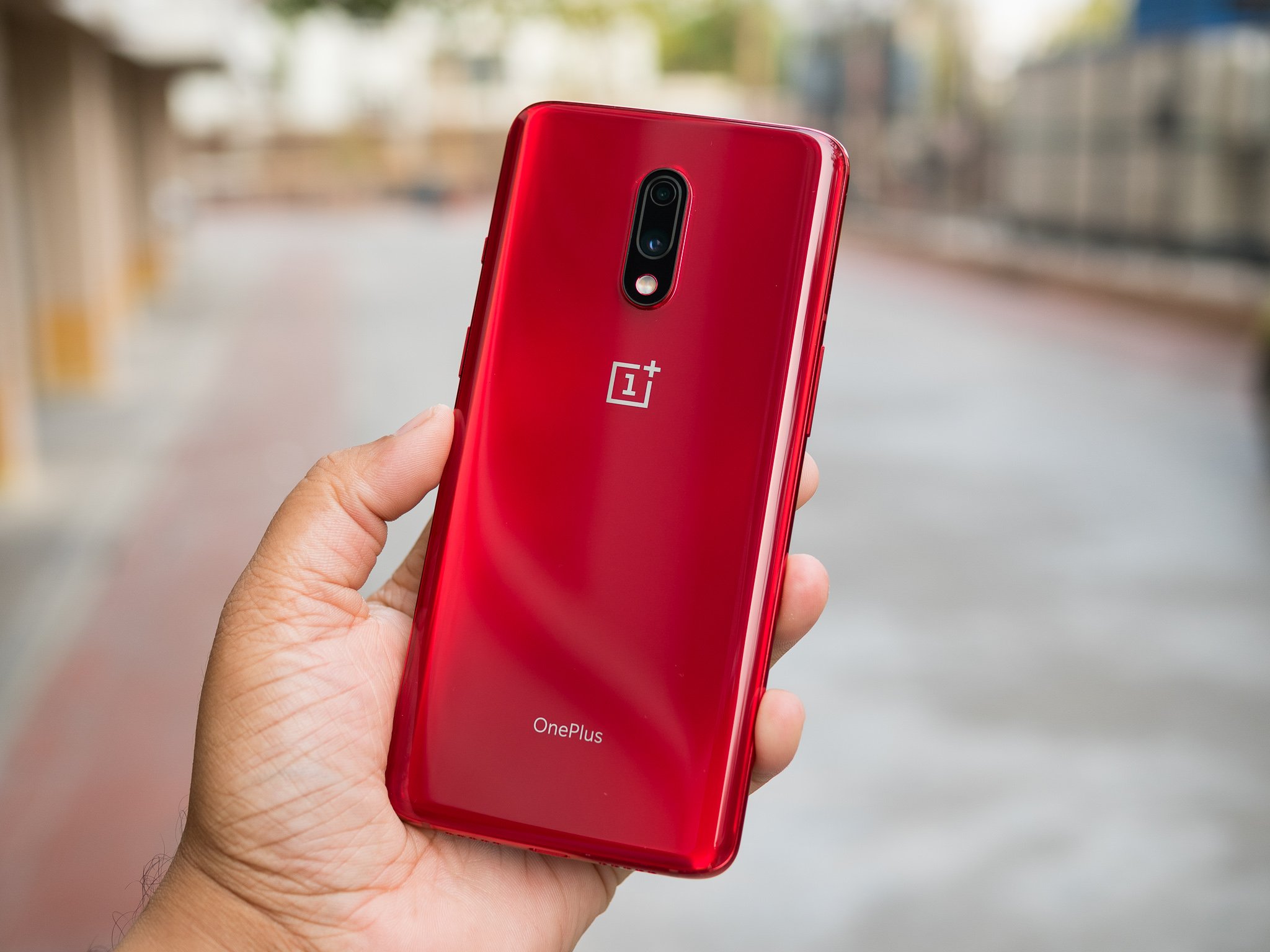Make no mistake here: the OnePlus 7 is not a new phone. It is the OnePlus 6T that we know and like, but with upgraded internals for 2019. OnePlus' strategy this year is pretty interesting: the OnePlus 7 Pro is aimed at those that want the latest features, and the OnePlus 7 continues the brand's ethos of delivering excellent value.
OnePlus isn't launching the OnePlus 7 in all markets — for customers in the U.S., the $669 OnePlus 7 Pro is the only option. The OnePlus 7 is coming to the UK for £499 ($630), and will be available for €559 ($620) in Europe and for ₹32,999 ($475) in India. It was a smart move by the brand, as the OnePlus 7 Pro retails for just $40 more than what the regular OnePlus 7 costs in the UK.
OnePlus' global pricing should give you an indication of what regions the Chinese manufacturer is trying to focus on with the OnePlus 7. India is the company's largest market — accounting for a third of its global sales — and OnePlus is trying to consolidate its position in the country by aggressively pricing the OnePlus 7. In fact, the OnePlus 7 is debuting for ₹5,000 ($70) less than the ₹37,999 ($545) retail price of the 6T.
Now that you have a better idea of where the OnePlus 7 fits into the company's overall strategy, it's time to take a look at the phone itself.
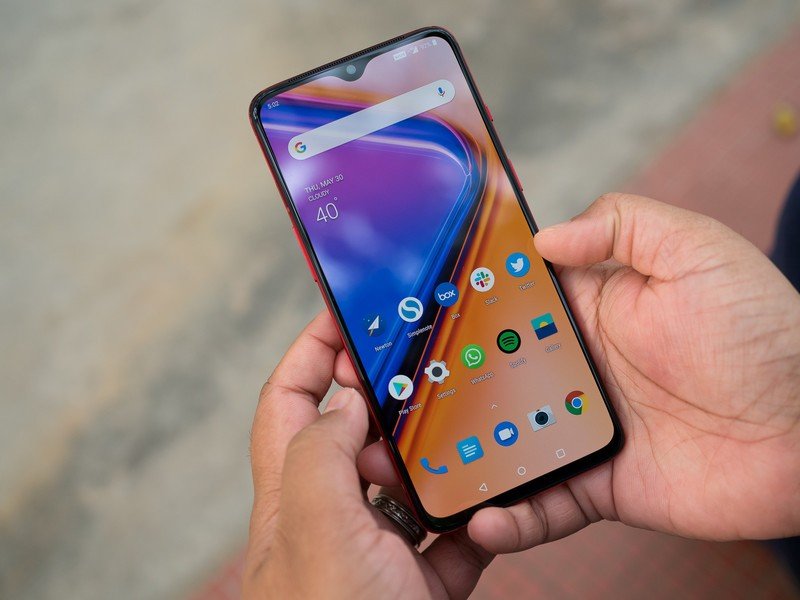
The OnePlus 7 is near-identical to the OnePlus 6T when it comes to the design. The only major change is a wider earpiece grille at the top, which doubles as a secondary speaker. The flash at the back is now tucked into the camera housing. OnePlus also has a new red color option that looks stunning, but aside from that there's nothing new here from a design standpoint. In fact, Andrew's OnePlus 6T review is still relevant for the OnePlus 7.
Considering the OnePlus 6T was largely unchanged from the OnePlus 6 — at least from the back — it's good to see that the design has held up very well into 2019. The glass back, the subtly curved sides, and that gorgeous color option combine to create one of the best-looking phones in this segment today. The red option is limited to India and China, and Mirror Gray is the only variant in Western markets.
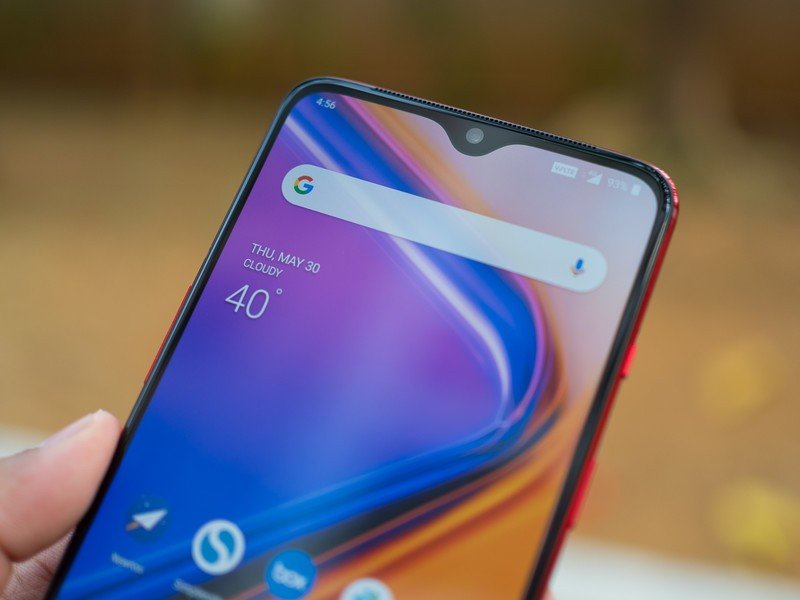
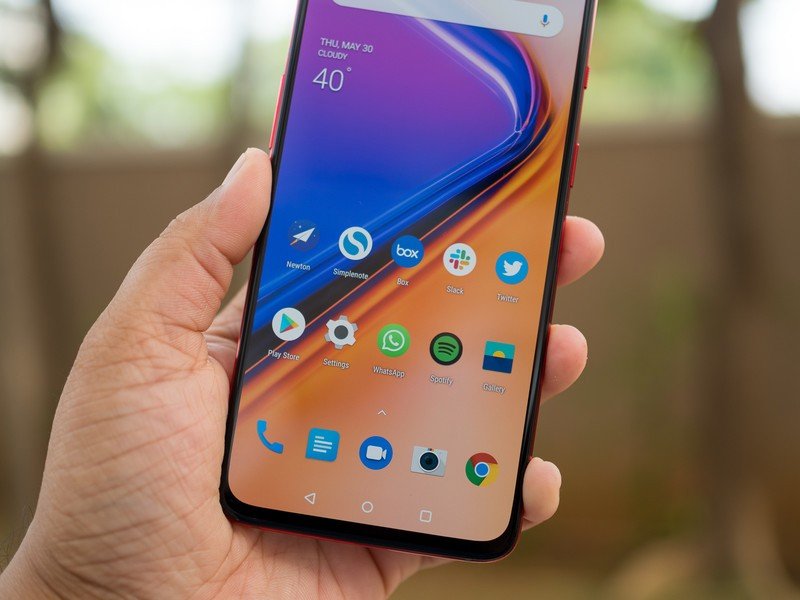
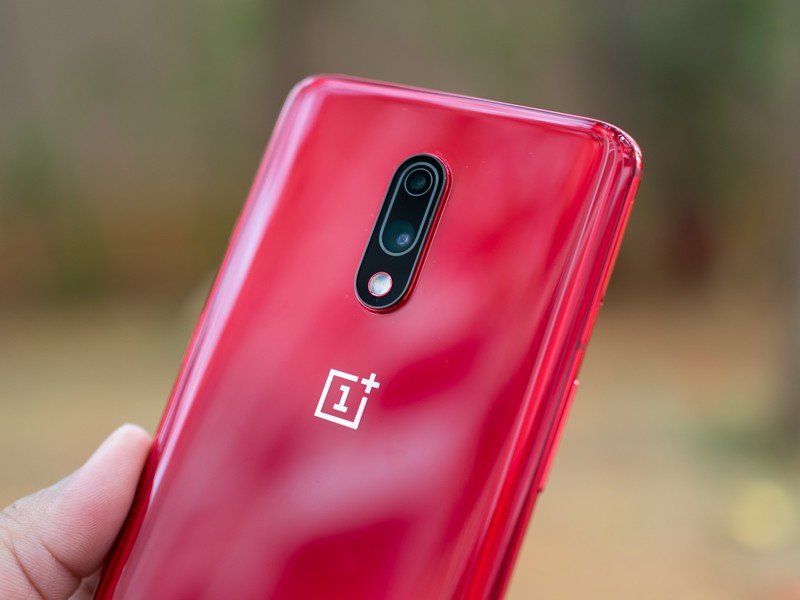
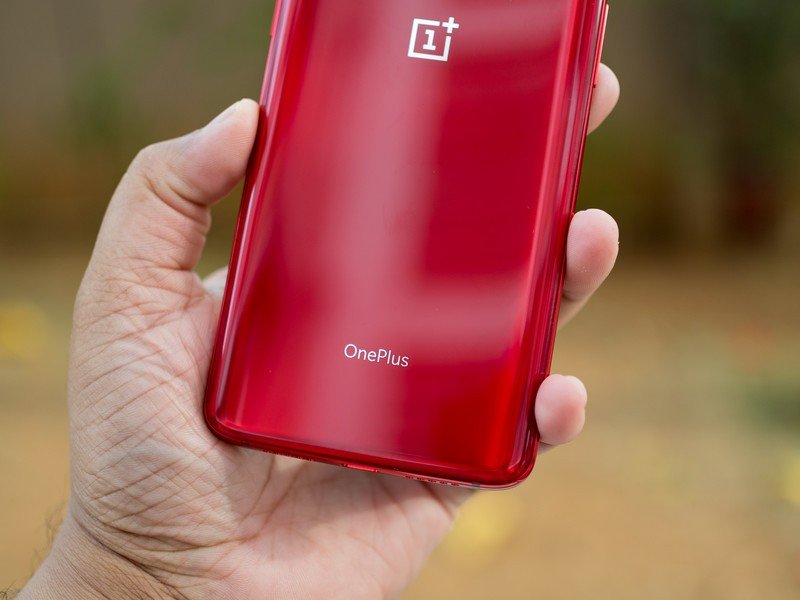
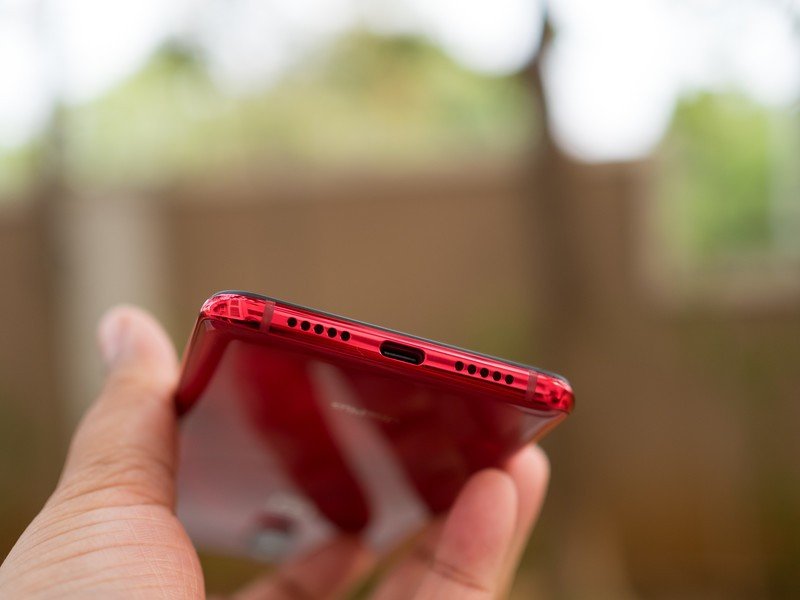

It's not just the design that the OnePlus 7 shares with the 6T, as the phone also has a lot of the same parts. The OnePlus 7 has a 6.41-inch Optic AMOLED display that's one of the best you'll find in this category. Colors are vibrant, and the panel gets bright enough for outdoor use. There's a waterdrop notch at the top of the display, and it's unobtrusive enough that it wasn't a bother.
The same great design as the OnePlus 6T, along with the same annoyances.
Because the OnePlus 7 shares a lot of its hardware with the OnePlus 6T, you'll also find most of the same annoyances. The in-display fingerprint sensor is still finicky, and there's no 3.5mm jack or notification LED either.
The OnePlus 7 also has the same 3700mAh battery as the 6T, and battery life is roughly identical. I haven't used the phone long enough to offer a more definite answer, but battery life should not be a problem. To give you a sense of how little has changed from the 6T, the charger that's in the box still bears the Dash Charge branding even though OnePlus switched to Warp Charge with the OnePlus 6T McLaren Edition. And like the OnePlus 6T, you're limited to 20W wired charging.
The latest specs at an even lower price point.
What has changed is the internal hardware. The OnePlus 7 is powered by Qualcomm's latest Snapdragon 855 chipset, and it also features UFS 3.0 storage. To be fair, the Snapdragon 845-powered OnePlus 6T is still plenty fast in 2019, and I didn't notice any huge uptick on the OnePlus 7. Whatever difference will only be evident a few years down the line, as right now the OnePlus 7 blazes through anything you throw at it.
Another new addition is the 48MP rear camera — the same as that on the OnePlus 7 Pro. You lose out on the wide-angle and telephoto lenses, but if I'm being honest, you're not missing out on much. Photos taken with the wide-angle lens on the OnePlus 7 Pro are just not worth the bother, and while the zoom lens fares better, it is also not quite up to the mark.






The 48MP camera features Sony's IMX 586 sensor, the same module that's used in the likes of the Mi 9, Honor View 20, the upcoming ZenFone 6, and more. The sensor is one of the best around, but as we've seen on the OnePlus 7 Pro, it's just not optimized well for the device. Daylight shots come out just fine, with plenty of dynamic range and accurate colors, but the camera on the OnePlus 7 suffers in low-light shooting scenarios.
I managed to get one decent shot, and that was after several attempts. Most of the images I took ended up being far too noisy, with colors washed out. That said, the sensor itself has a lot of potential, and OnePlus needs to put in the work to tune it better.
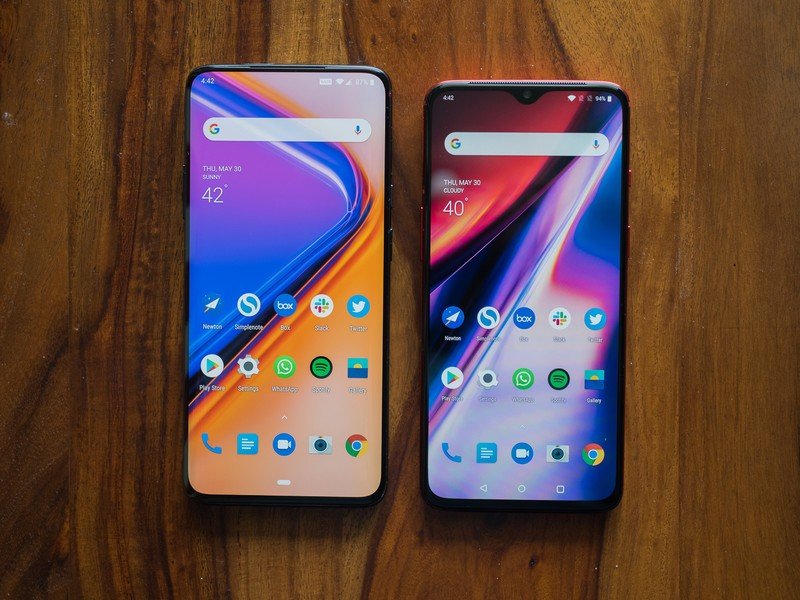
The OnePlus 7 will obviously invite comparisons to the OnePlus 7 Pro, with the latter offering a 90Hz QHD+ display and 30W wired charging. The notchless design is much more immersive and the 90Hz panel is addictive, and there are minute changes throughout that make it a better phone.
That said, the OnePlus 7 Pro carries a heavy premium over the standard version. It is available for £649 ($820) in the UK, €709 ($780) in Europe, and ₹48,999 ($700) in India.
Having used both devices side-by-side, the only thing I miss is the 90Hz display — it is absolutely fantastic, and going back to a 60Hz display feels slow in comparison. But that alone isn't worth the extra $190 you'll be shelling out for the phone in the UK, and you're much better off with the OnePlus 7.
This is particularly true for Indian customers. OnePlus is essentially setting itself up as a viable alternative for the likes of POCO and Realme, and in doing so is offering the best value in India's premium segment right now. For ₹32,999, you're not going to find anything that comes close to the OnePlus 7.

OnePlus 7
Great specs, outstanding value.
The OnePlus 7 may not have a notchless design or a 90Hz display, but it offers the latest hardware at a price point that's lower than its predecessors. The 48MP camera has a lot of potential, and you get the same software experience as the OnePlus 7 Pro. This is already one of the best deals you'll find all year.

Harish Jonnalagadda is Android Central's Senior Editor overseeing mobile coverage. In his current role, he leads the site's coverage of Chinese phone brands, networking products, and AV gear. He has been testing phones for over a decade, and has extensive experience in mobile hardware and the global semiconductor industry. Contact him on Twitter at @chunkynerd.
